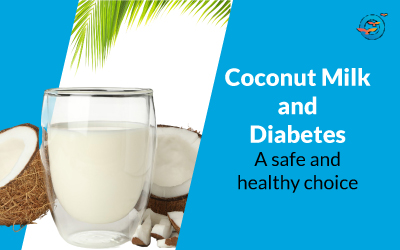Is Banana Good for Diabetes?

Bananas for Type 2 Diabetes
Bananas are a true global fruit, cherished for their versatility, accessibility, and nutritional value. Unlike many fruits that are seasonal, bananas thrive year-round, making them a staple fruit in countless countries.
They are grown in almost every corner of the world, from tropical regions to subtropical climates, and are a significant part of both local and global agricultural economies.
Best Banana Variety
Each region boasts unique varieties of bananas, reflecting local climates, soil conditions, and cultural preferences. In Africa, for instance, plantains are a prominent variety. These starchy bananas are a dietary staple in many African countries, often cooked and served as a savory dish.
In America, varieties such as Cavendish dominate the market, prized for their sweetness and ease of transportation. Asia, being one of the largest producers of bananas.
It offers a diverse range of varieties, including the
- Red banana
- Mysore banana
- Lady Finger banana
Each celebrated for its distinct flavor and texture.
Meanwhile, Australia grows popular varieties like the Cavendish and Lady Finger bananas, contributing to its domestic consumption and export markets.
India is home to a diverse range of banana varieties, each celebrated for its unique taste, texture, and nutritional profile. Some popular varieties include,
- Robusta
- Rasthali
- Poovan
- Red banana
- Monthan
- Nendran
Do Bananas Increase Blood Sugar?
Bananas and diabetes often raise questions like, "Do bananas increase blood sugar?" or "Can diabetics safely eat bananas?"
The key consideration is their glycemic index (GI), a measure of how quickly foods raise blood sugar levels. Bananas fall in the medium GI category, meaning they cause a moderate rise in blood sugar.
Nutritional Benefits of Indian Bananas
Indian bananas fall under the medium glycemic index (GI) category, making them a balanced choice for energy and nutrition.
Rich in essential nutrients like potassium and magnesium, they play a vital role in supporting heart health, maintaining electrolyte balance, and reducing muscle cramps.
Are bananas good for pre-workout?
The natural sugars in bananas provide a quick energy boost, making them an ideal pre-workout snack for athletes and fitness enthusiasts.
For those managing blood sugar levels, ripe bananas can be enjoyed in moderation, as they offer a wholesome option without causing significant spikes in glucose levels.
The Benefits of Raw Bananas
On the other hand, raw bananas are a great source of resistant starch, which promotes gut health and offers a slower release of energy. These can be used in moderation in savory dishes like curries or chips.
When choosing bananas, it's best to select varieties local to your region, as they are fresher, more sustainable, and better suited to the local climate and diet preferences. Embrace the versatility of this globally loved fruit as part of a healthy lifestyle!
To have maximum benefits consult your diet expert or health professional with the amount of banana that can be taken.
Do you want to know Is Sweet Potato Good for Diabetes?, visit our blog.
FAQs-
Can I eat bananas daily if I have diabetes?
Yes, but in moderation and paired with protein or healthy fats to manage blood sugar.
Is it better if I eat bananas when they are ripe or unripe?
Unripe bananas are better as they have a lower glycemic index.
How do bananas affect my blood sugar levels?
Bananas can raise blood sugar, but the impact depends on portion size and ripeness.
How many bananas can I eat safely if I have diabetes?
Stick to ½ to 1 small banana per day, depending on your blood sugar levels.
Are bananas safe for me if I have gestational diabetes?
Yes, but eat in controlled portions and consult your doctor or dietitian.
What are the benefits of bananas for diabetes?
Bananas provide fiber, potassium, and vitamins, supporting overall health.
Can eating bananas cause my blood sugar to spike?
Yes, if consumed in large quantities or without balancing with other foods.

